Moscow is in the grips of highly contagious disease: Chess Fever! An ongoing chess tournament has turned Russia’s addiction to the game into a frenzy. One young man in particular has a dire case. In fact, it’s so bad that he forgets little things like his appointment to get married. Will chess fever ruin his romance or can he kick the habit in time?
Home Media Availability: Released on DVD and Bluray.
Worst. Wedding. Ever.
Russians are funny. You would think that this would be a given. Every culture has a sense of humor, after all. However, if most Hollywood films are to be believed, Russians stare grimly at one another’s fur hats from morning till night, scheme for world domination (or at least a chance to kill that pesky Mr. Bond) and never crack so much as a Mona Lisa smirk unless very, very drunk. When humor is involved, it is generally directed at the Russians, making them figures of ridicule.
This is mean and it is ignorant. The fact is, Russia has a glorious sense of humor. At its best, Russian humor is quirky, madcap, surreal and deep. It can cut to the very core of humanity. If you think that Russia and the former Russian Empire are humorless places, kindly read the short stories of Chekhov and Gogol (preferably the translations I have linked to), as well as the work of writing team Ilya Ilf and Yevgeni Petrov and then come back to me. If you still don’t think Russians are funny after reading all that, I don’t want to play with you anymore.
(Yes, I know that Gogol is Ukrainian, as were Ilf and Petrov, but all wrote in Russian. No, we are not going to discuss disputed national borders of the former USSR.)
If you want a mainstream Hollywood Cold War movie that allows the Russian characters to be just as funny as the Americans, check out the delightful The Russians Are Coming, The Russians Are Coming. However, if you want to see Russians having a bit of fun in a film made by Russians, for Russians… Well, here is Chess Fever.
The story is simple. There is an international chess tournament in Moscow (actual footage of the event is spliced into the tale) and the entire city is mad for chess. Moves and strategies are fervently discussed. Everyone seems to have a match going. Our unnamed hero (played by Vladimir Fogel) has a pretty strong case of chess fever. So strong, in fact, that he has forgotten an appointment.
An appointment to do what? Why, to meet his fiancée (Anna Zemptsova) for their wedding. Whoopsy.
Anna does not play chess and this strange obsession with the game completely baffles her. When Vladimir shows up hours late, she is inclined to forgive him but quickly changes her mind when she catches him trying to fit in a quick game mid-apology. She strips him of his chess paraphernalia (strategy books, mini chess sets, etc.) and vows to take poison. Vladimir responds that he will drown himself and the erstwhile lovers part in a huff.
Poor Anna runs to her grandfather for comfort. He tells her to draw strength from the Good Book. No, it’s not religious, it’s a manual of chess problems. Anna’s attempt at poisoning is thwarted when her chess-obsessed chemist hands her a chess piece instead of a bottle of cyanide.
Meanwhile, Vladimir has decided that his love for chess has gone too far. He takes off his chessboard socks, his chessboard scarf, his secret supply of mini chess sets and throws them into the river.
Will he and Anna reconcile? Well, yes but only after some unexpected help from real-life Cuban chess champion Jose Raul Capablanca.
One of the secrets to Chess Fever’s enduring popularity is that its subject matter is instantly relatable. Substitute baseball, soccer, football, video games… Any all-absorbing bit of entertainment will slide easily into the tale. The subject of alienation is equally universal. I think everyone, at some point in their lives, has felt that they just do not “get” some fad that is taking the world by storm.
The Moscow of Chess Fever is a topsy-turvy world where the “normal” character of Anna is seen as the mad one and the rest of the city is perfectly happy with its obsession. One of the funniest scenes in the film is Anna’s outburst at Vladimir. She is trying to make him understand why she is upset but he just keeps reading his book of chess problems. She snatches the book and hurls it out the window but he has another book in his pocket that he begins to read without skipping a beat. Meanwhile, joyous pedestrians are happily reading these chess books that seem to have fallen from the heavens. Old men, blind men, a cop and a criminal… chess is more important than anything else!
The funniest scene, at least to me? The introduction of Vladimir in his kitten-overrun apartment as he tries to get ready for his wedding but keeps finding little furballs in his shoes, coat, sock drawer… (Russians do love their cats.) Vladimir finds one last pair of kittens in his coat pockets. He casually deposits them in the pockets of another coat and walks out. The offhand way these gags are delivered is a huge part of what makes them so funny. (By the way, I do not find this short to be particularly “Keatonesque,” as some critics have termed it.)
Director Vsevolod Pudovkin is best remembered for Mother, The End of St. Petersburg and Storm Over Asia. Chess Fever was made early in his career but you can easily see that there is something special at work. (Very little is known about the credited co-director, Nikolai Shpikovsky.) While the direction is witty and fast-paced, the real star of the technical show is the clever cinematography by Anatoli Golovnya. Chess soaks into the very atmosphere of Moscow, with floors, windows and light all mimicking the pattern of the board. Golovnya and Pudovkin would reunite for the acclaimed films mentioned above.
Vladimir Fogel makes an appealing hero. His nerdy appearance suits his character well and his comedic timing is flawless. (Fogel was equally charming as an American reporter in the serial curio, Miss Mend.) Fogel struggled with depression and took his own life in 1929 at the age of twenty-seven. This tragedy deprived the world of an enormously talented comedian.
Chess Fever is one of the wittier treasures of silent Soviet cinema. While dramatic works like Battleship Potemkin get a good deal of attention, we must remember that the movies in Russia were not all work and no play.
Quirky, funny, surprisingly deep and clocking in at just under a half hour, Chess Fever is a delight to watch and an ideal introduction to silent film.
Movies Silently’s Score: ★★★★½
Where can I see it?
Chess Fever has been released several times on DVD as a package deal with other Soviet films. The version released by Kino also includes Earth and The End of St. Petersburg. The Flicker Alley release comes with Bed and Sofa. Flicker Alley has released the film on Bluray to accompany Pudovkin’s Bolshevik Trilogy.
☙❦❧
Like what you’re reading? Please consider sponsoring me on Patreon. All patrons will get early previews of upcoming features, exclusive polls and other goodies.
Disclosure: Some links included in this post may be affiliate links to products sold by Amazon and as an Amazon Associate I earn from qualifying purchases.
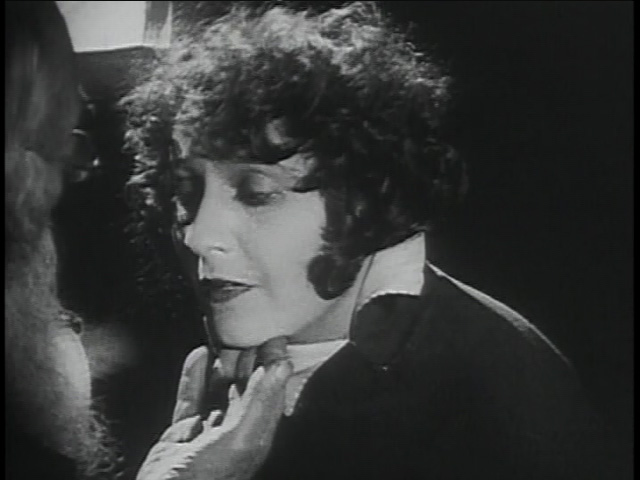

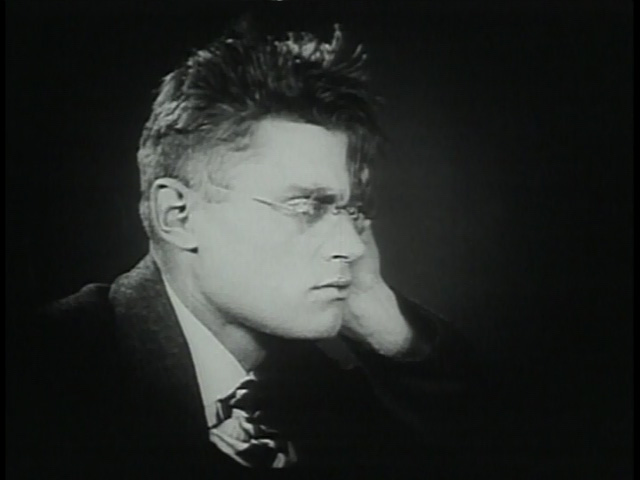
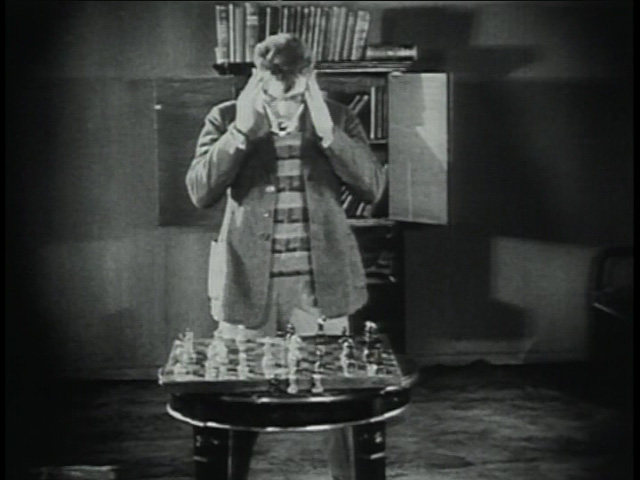

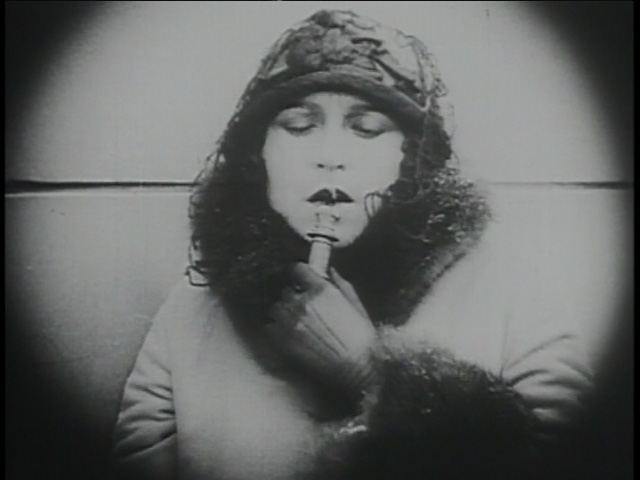



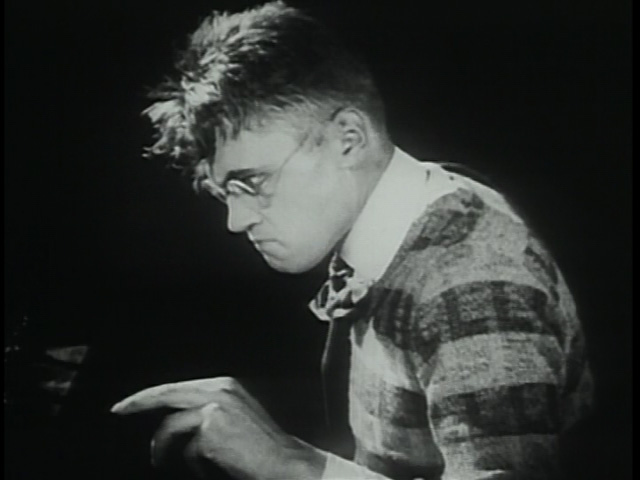

I’m not normally a fan of Russian cinema, but this does sound like something that could be amusing to see if I got the chance.
It’s quite delightful 🙂
Chess Fever sounds delightful! I have to see it.
I highly recommend it! 🙂
I gave it the Best Short Award in my 1925 personal Academy Award in January. This is a brilliant short. I had never had such fun neither in a Russian film nor in such a short movie. I also love the kitten scene!
Kisses!
It’s a treasure! 🙂